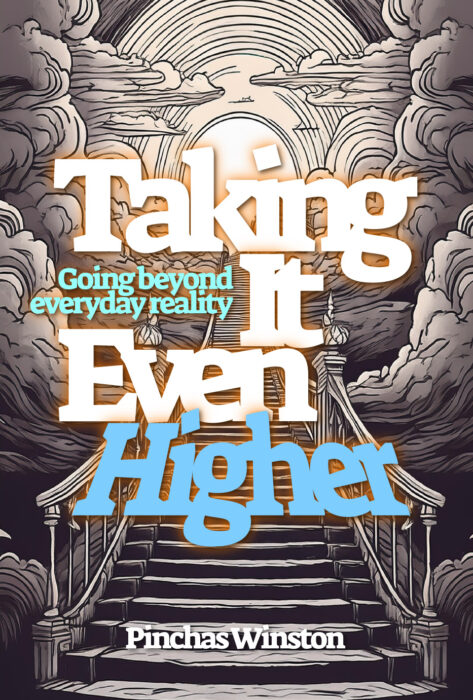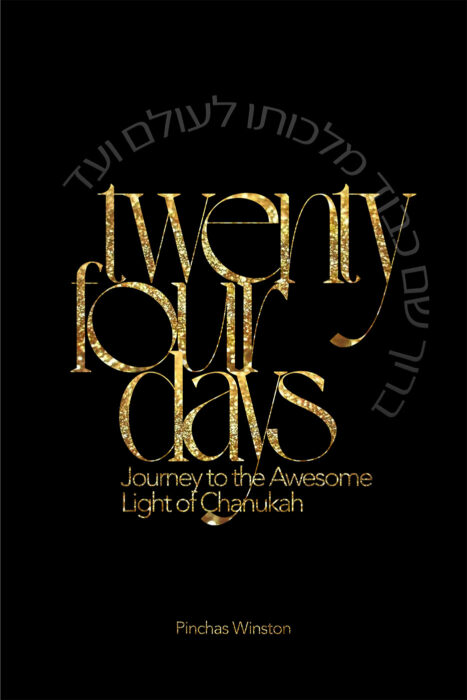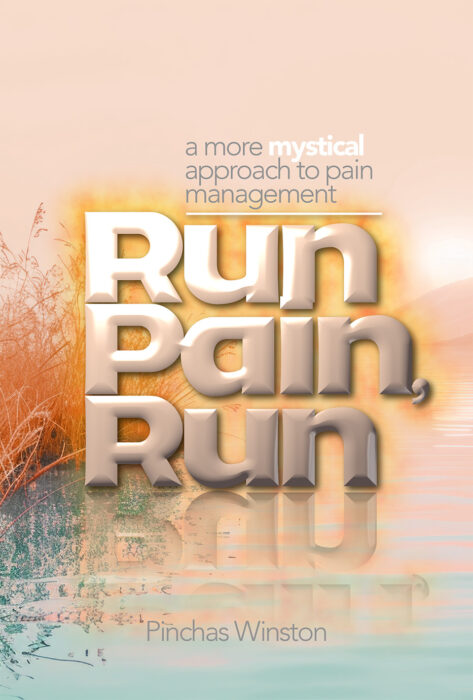Parashas Bamidbar-Shavuos, Issue #2098 - By Rabbi Pinchas Winston
WRITER’S BLOCK IS a real thing for some. There are an infinite number of ideas in the world, and yet a writer can feel as if they have lost access to all of them. They can feel like a television once the network has gone off the air: just a lot of meaningless and annoying fuzz and buzz. Incredibly frustrating.
After writing over 115 books, thank God, I don’t experience that. I have grown so confident that I won’t do an outline for any of my books, and I have no problem coming up with chapters as I go along. One day I will feel like, “Well, I guess that’s it,” having no idea what to write next and feeling like a barren desert. And then, hours later I will see, hear, or experience something that says, “Hey, this will make a great book or next chapter,” and feel as if the desert has miraculously bloomed. It’s like a personal Har Sinai and Kabbalas HaTorah all over again!
I learned a long time ago not to take any credit for any of it. I am not the bestselling author I hoped to become, and I don’t even know how many people enjoy what I write. Few people make a full living off writing books, and even fewer of writing Torah books. We remain the People of the Book even in the digital age, but it is usually very specific books that those “people” buy plenty of.
I do get the occasional comment to warm my heart and inspire my fingers. In this business, if you help even one person to get more out of life, dayainu. Honestly, I cannot fathom the top-selling secular books on Amazon already having 45,000 plus reader responses within months. Even if millions buy their books, it is amazing that so many people are inspired to later come back and leave their feedback. Ten reader responses, for me, is already a lot, and that can take two years after publishing.
If you plan to make a full parnassah off of writing Jewish books, you had better get used to eating mann, because that’s what it’s like. With the exception of a few whose mazel is to succeed at their writing, most receive only a fraction of what they need to live off of, and even more only get a fraction of a fraction. But they also probably did not write their sefer to be safer financially, but instead to share their personal portion of Torah with others. Being able to do that is often reward enough for them…us.
Dedications make a big difference when you had to pay for printing costs, and even more so now that you can print on demand, especially through Amazon. That’s a big advantage of a Torah book over a secular book: you can pay to be a part of it and earn merit in this world and the World to Come for doing so. And the author can end up with some money to survive long enough to write another book and share even more Torah.
But at the end of the writing day, all of that is second to one of the main merits of writing a Torah book, at least from my perspective. How many people will read them will be an ongoing issue, but later. Parnassah will be a consideration once published. But the magic of writing a Torah book is during the entire process, and it makes you feel rich even when you’re not. It’s about being in the zone, just not that one…even when writing a Torah book for children.
You feel like a conduit between God and the paper. It feels as if Torah insights mystically appear in your mind as you continue to write, as if drawn from some infinite but invisible spiritual well of knowledge. You feel elated and inspired as insight after insight courses through spiritual veins from your brain to your fingers. You feel so gifted because you can’t help but feel that you are not responsible for any of it because you clearly are not.
Surprisingly, that feels better than living with the illusion that you are responsible for your accomplishments. There are other parts of my life where it is easy to be confused about that and only catch the mistake later, if at all. But in trying to understand Torah, and then share it with others, it is so much clearer that it only happens if God is the one making it happen, not you. Feel blessed if He chooses to work through you, very blessed.
Hence, the connection between the giving of Torah and the desert. It might have seemed more logical to have given such holy words of God in the holiest land in the world. But God didn’t do that. Instead, He gave the holiest knowledge in one of the least holy places in the world, the desert.
Because, as the Gemora says, a desert symbolizes complete simplicity and humility, just like matzah. Even Har Sinai was the lowest of mountains in the area by Divine choice to teach us the most important lesson about receiving, learning, and transmitting Torah: DON’T GET IN THE WAY!
It’s okay to have a lot of personality. Many people do. It’s okay to be unique and do your own thing, your own way. It’s just that, when it comes to working on behalf of God, you need to get out of the way. You need to make sure that your ego doesn’t interfere with being a shaliach of Hashem, because the more ego you allow in, the more God you push out.
And at the end of the day, and really the end of our lives, the only meaningful things we’ll take with us to the next world are all the times we were good shlichim for God. That’s when we’ll look back and see all the times we let ego get in our way of being a conduit for the light of God, and we’ll regret each time.
The Torah is unlimited, an infinite wellspring of knowledge and wisdom. And all that stands between us and it, and all the incredible pleasure we can get from accessing it, is us, our egos. That’s something we can work with.
Thirtysix.org
Rabbi Pinchas Winston
Shabbat Shalom



















